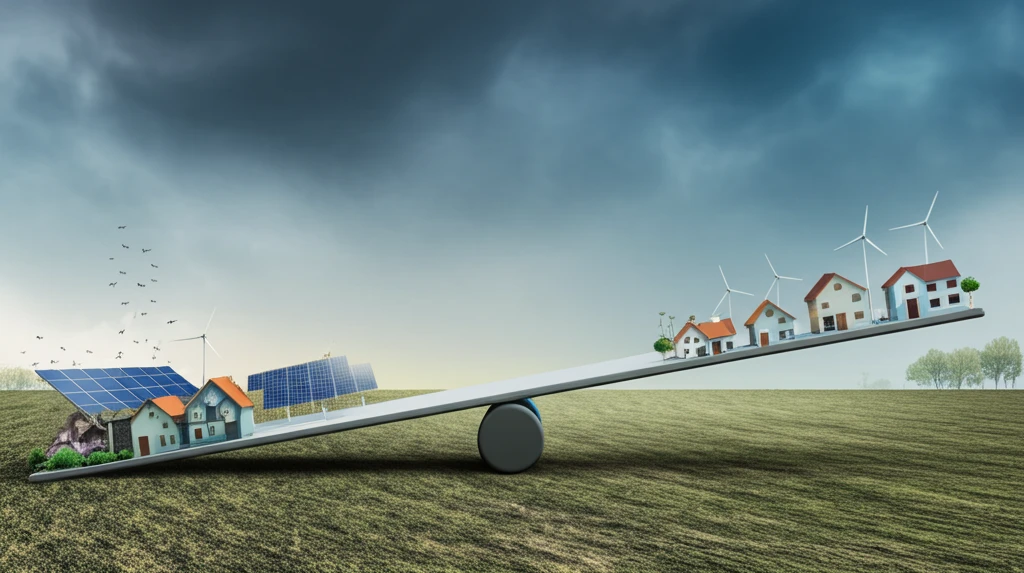
Net-Zero by 2050: Are We Leaving Lower-Income Households Behind?
"A new multi-model analysis reveals the equity implications of deep decarbonization policies, highlighting the critical need for thoughtful climate action."
As governments and corporations worldwide set their sights on achieving net-zero emissions by mid-century, a crucial question emerges: How will these ambitious targets affect everyday households, particularly those with lower incomes? The transition to a decarbonized economy promises long-term benefits for all, but the upfront costs and policy implementations could disproportionately burden vulnerable populations.
A comprehensive study published in October 26, 2023, delves into this critical issue, offering a multi-model analysis of the equity implications of net-zero emissions policies. Researchers from several institutions use a range of energy-economy models to assess how different decarbonization strategies impact energy expenditures across income classes in the United States. Their findings reveal both potential challenges and opportunities for creating a more just and sustainable future.
This trending article examines the study's key insights, illuminating the distributional dimensions of technology transitions and net-zero policies. We'll explore how climate policies affect household welfare and finances, focusing on the often-overlooked impacts on lower-income communities. Understanding these dynamics is essential for policymakers and stakeholders committed to ensuring that the path to net-zero is paved with equity and inclusivity.
How Do Net-Zero Policies Impact Household Energy Costs?

The study analyzes the effects of policies designed to achieve economy-wide net-zero CO2 emissions in the United States by 2050. By employing a novel linking approach, the researchers connect output from detailed energy system models with survey microdata on energy expenditures across income classes. This allows them to assess the distributional impacts of different policy scenarios, considering factors such as changes in energy prices, technology adoption, and household consumption patterns.
- Direct Energy Expenditures: Models generally predict a decline in direct energy expenditures for many households over time, even with net-zero policies in place. This is largely due to increased energy efficiency and the electrification of transportation and other sectors.
- Policy Incidence: The way climate policy revenues are used has a significant impact on distributional outcomes. Policies that recycle revenues through per-capita rebates can offset higher energy burdens for lower-income households and potentially lead to progressive outcomes.
- Uneven Distribution of Costs: Net-zero policy costs are unevenly distributed across households, with lower-income households often experiencing higher relative increases in energy expenditures. This highlights the need for targeted support and mitigation measures to protect vulnerable populations.
- Carbon Laffer Curve: The study identifies the presence of carbon Laffer curves, where revenues from net-zero policies initially increase but then decline with higher stringencies. This phenomenon can diminish the progressive effects of climate policies if not carefully managed.
Towards a Just and Sustainable Future
Achieving net-zero emissions is essential to mitigate the impacts of climate change and secure a sustainable future for all. However, it is equally important to ensure that the transition to a low-carbon economy does not exacerbate existing inequalities. By carefully considering the distributional effects of climate policies and implementing targeted support measures, policymakers can create a more equitable and just path to net-zero. This requires a commitment to revenue recycling, progressive policy design, and ongoing monitoring of the impacts on vulnerable communities.
